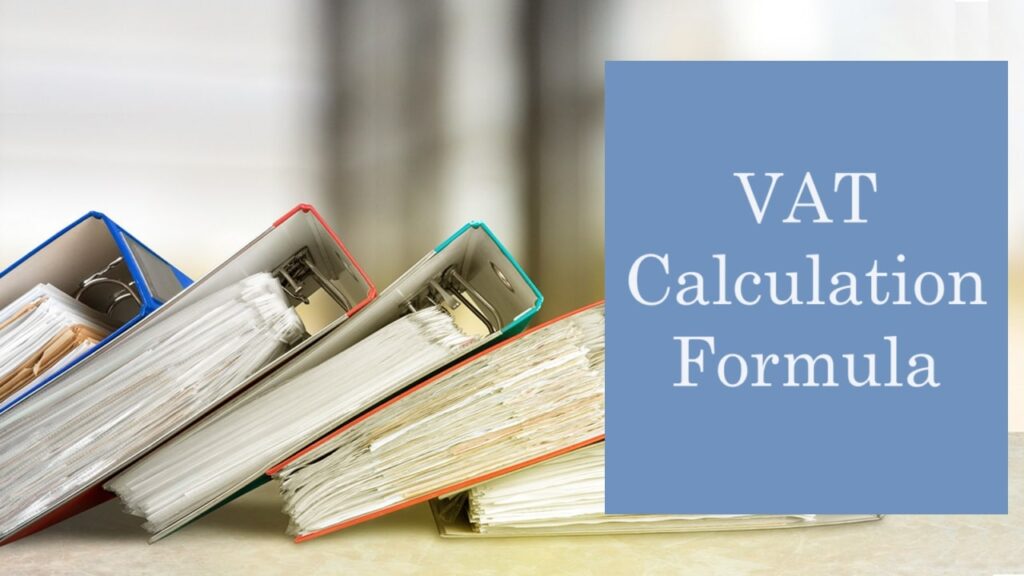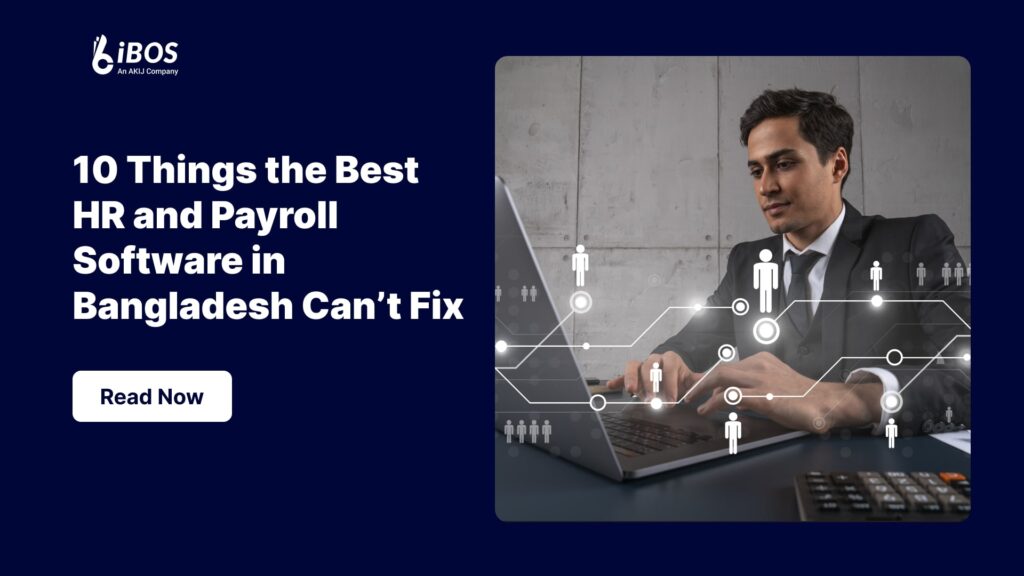We don’t know what’s wrong with SMEs! It seems they’re just too scared to take the road of automation. There are many available solutions, like ERP software, for small business in Bangladesh, but it looks like they don’t want them at all.
This is 2024, and businesses need to transform their operations powered by cloud-based solutions. In fact, it is high time to move their businesses to enterprise resources planning (ERP) solutions, as this one move can change their entire game. The question is, why would they try that route, and what would that accomplish for them in the first place? Well, the answer is waiting ahead.
ERP Software for Small Business – The Game Changer
No one likes change until the outcome is positive enough to get them something better. Things are pretty much the same when it comes to SME owners and ERPs. But once you bring that into your business, you’ll have to forget worrying about a bunch of things like –
Business Reporting
Business reporting is greatly aided by enterprise resource planning (ERP) software, which provides a unified system for collecting, storing, retrieving, and analyzing records from a wide range of operational systems. The best ERP software for small business aids in business reporting in a number of ways, including the following:
Data Integration
ERP software in Bangladesh integrates data from a wide range of business operations, including financial, sales, inventory, human resources, and others. It streamlines report creation by consolidating data from several sources into a single, coherent picture of an organization’s functioning.
Real-time Data Availability
Unlike incompetent solutions, ERP software in Bangladesh guarantees that only the most recent data is used for reporting. Managers and decision-makers can utilize these insights to adapt swiftly to shifting market conditions. This not only allows them to up their game but also provides big leverage in keeping management updated on business scenarios.
Standardized Reporting
Custom Enterprise resource planning (ERP) solutions offer standardized reporting templates and capabilities, guaranteeing that all reports will look the same. The reporting process is simplified, mistakes are reduced, and data integrity is enhanced as a result of this standardization.
Customizable Reports
A common feature of ERP software is the ability to modify reports to better suit individual companies’ needs. Users may choose the data items, filters, and report formats to generate reports with the exact information and metrics they need.
Key Performance Indicators (KPIs) and Dashboards
It is possible to develop reports in ERP systems that include key performance indicators and metrics that have already been established. Key performance indicators (KPIs) may be shown in real-time via adaptable dashboards that offer relevant data, trends, and metrics, which indeed help a lot with HR evaluation.
Ad Hoc Reporting
Ad hoc reports may be generated on demand in ERP software, giving users the freedom to go beyond the confines of predefined reports and delve deeper into the data. Because of this adaptability, users may pull out relevant data and generate individualized reports to aid in analysis and decision-making.
Compliance and Regulatory Reporting
Features that aid in meeting compliance and regulatory reporting requirements are common in ERP systems. ERP software reduces the likelihood of non-compliance and associated fines by automating data collecting and aggregation processes.
Data Analysis and Insights
In order to get insight from the accumulated data, the best ERP programs often contain data analysis capabilities. ERP systems aid in the identification of trends, patterns, and possibilities that can guide strategic decision-making through the use of various analytical tools and the generation of visualizations.
In general, ERP software helps save time and effort when generating reports, improves the reliability of data, and reveals previously hidden information about how a business is doing. A company’s growth, efficiency, and decision-making may all benefit from using ERP software.
Improving Customer service
When used properly, ERP (Enterprise Resource Planning) software has the potential to greatly enhance customer service in a number of important areas. ERP software may improve customer service in the following ways:
Centralized Customer Information
ERP software centralizes customer data from disparate sources, including sales, marketing, finance, and support, all in one place. Thanks to this consolidation, agents may quickly and easily access customers’ whole histories whenever they need them. They can see the customer’s purchase and interaction history, preferences, and other data, allowing them to tailor their service to each individual.
Streamlined Order Processing
Order Processing Workflows Are Simplified by Automation and Streamlining ERP Systems. Order confirmations, inventory tracking, shipment processing, and status updates may all be handled mechanically by the ERP system when a client puts an order. Ordering mistakes are avoided, delivery times are cut down to a minimum, and clients are given up-to-date information.
Efficient Issue Resolution
Effective Problem-Solving ERP software enables customer care teams to log and monitor complaints and concerns from customers. Ticket resolution may be tracked, allocated, and prioritized in real time. Having a centralized issue management system allows customer service agents to work with other departments, such as technical support and product development, to quickly handle client issues. Improved customer satisfaction is the result of better communication and the ability to resolve problems more quickly.
Enhanced Communication
Better internal and external communication is made possible by ERP Software for small business in Bangladesh. Internally, the ERP software solution allows for unhindered communication and access to client data across departments. Customer service agents on the front lines may utilize the ERP system to obtain important customer information while they correspond with clients through email, phone, or live chat. Response times and interactions with customers benefit from having access to reliable and timely communication channels.
Accurate Sales Forecasting
For more precise sales projections, businesses may use the information that ERP systems collect on sales and the buying habits of customers, changes in demand, and seasonality. With this data, support staff can better foresee their customers’ demands and deal with problems before they even arise. Organizations may avoid stockouts and unhappy customers caused by a failure to meet demand by estimating that demand properly.
Integrated CRM Functionality
Some enterprise resource planning (ERP) packages either incorporate or integrate with specialized customer relationship management (CRM) software. Companies may manage contacts with customers, keep tabs on leads, run campaigns, and study client habits with the use of customer relationship management (CRM) software. Integrating CRM with ERP allows customer support agents to easily access customer information from within the ERP platform.
In general, ERP software allows businesses to render fast, effective, and individual service to their clientele. ERP software improves customer satisfaction by centralizing data, automating procedures, and facilitating greater communication and cooperation.
Inventory Cost Management
Several features of ERP software solution assists in the control of inventory costs. In this sense, it aids in the following ways:
Real-time Inventory Visibility
Inventory levels, locations, and movement can be viewed in real-time with a cloud-based ERP software solution. With this kind of oversight, businesses can keep their stock at just the right amount to prevent either overstocking or running out of a product. By improving procurement, production, and sales choices, it helps companies reduce inventory expenses.
Demand Planning and Forecasting
Modules in ERP software solution dedicated to demand planning and forecasting can help businesses better predict consumer demand and adjust stock levels accordingly. ERP software for small business in Bangladesh are able to forecast demand changes by assessing past data, market trends, and sales patterns. This capacity helps maximize stock efficiency, minimize surplus, and cut down on storage fees.
Inventory Optimization
Best ERP software for small business use optimization techniques to figure out how much stock to keep on hand depending on variables like expected demand, lead times, and service level goals. ERP software solution is useful for this since it allows businesses to incorporate practices like Economic Order Quantity (EOQ), reorder points, and safety stock calculations, all of which help keep inventory at a reasonable level while reducing carrying costs and stockouts.
Cost Tracking and Analysis
The best ERP software for small business facilitate the monitoring and analysis of a wide range of inventory-related expenses. It has options for recording expenses incurred during the buying, storing, managing, transporting, and eventually discarding of a product. With this knowledge, firms may evaluate their inventory’s real cost, spot areas where they can save expenses, and manage their stock levels accordingly.
Just-in-Time (JIT) Inventory Management
ERP software for small business can help with JIT inventory management by allowing for more streamlined coordination between production, supply, and demand. JIT procedures lower carrying costs, cut down on waste and boost cash flow by keeping inventory levels and delivery schedules in sync with actual customer demand. By centralizing all relevant data in one place, ERP software facilitates the effective application of JIT concepts across the organization.
Inventory Valuation Methods
First-In, First-Out (FIFO), Last-In, First-Out (LIFO), and Weighted Average Cost (WAC) are just a few of the inventory valuation methodologies included into ERP software. Cost of goods sold (COGS), profit margins, and other metrics are all influenced by the methodology used to value inventories. In order to maintain precision and uniformity in inventory cost management, ERP systems automate the valuation process.
Supplier Management and Collaboration
ERP software in Bangladesh typically contain supplier management tools that help businesses continue fruitful partnerships with their suppliers. Improved coordination and the ability to negotiate more favorable terms may be achieved through effective supplier collaboration, such as the exchange of demand projections, lead times, and performance data.
By sharing data and resources, businesses may cut down on procurement costs, boost supplier dependability, and reduce the likelihood of stockouts. This is specially very helpful for small businesses as they always try finding ways to reduce operational costs. ERP software for small business also allows the users to better manage their inventory expenses, optimize their stock levels, and boost their supply chain’s overall performance.
Otherwise, why they would have felt the need for an ERP software for small business in Bangladesh? Better decisions, cost management, and operational efficiency are all the results of incorporating inventory management procedures into the ERP software solution.
Final Words
To be honest, we’ve just told you the friction of benefits that you can grab with the right ERP software in Bangladesh. There are tons of them that you can add to your book, like procurement management, data security, cloud database, etc. But where will you get all of them? Well, if you’re asking for suggestions, then we think Managerium put everything you want on your table.











